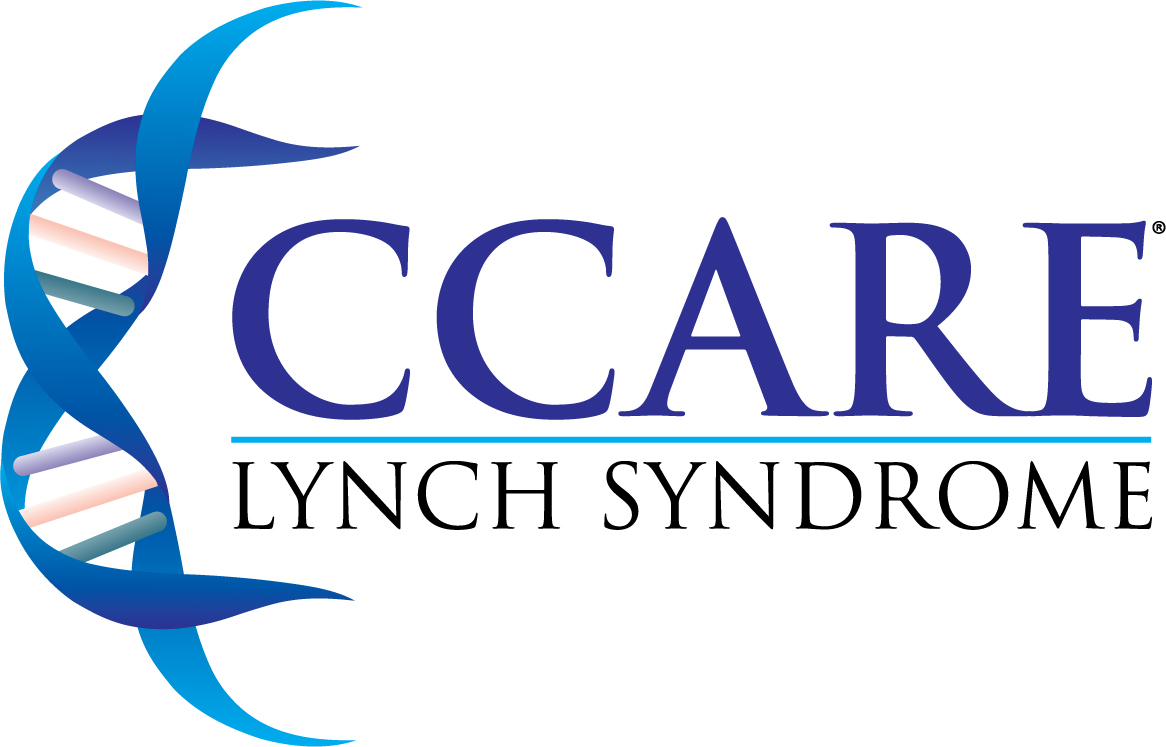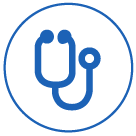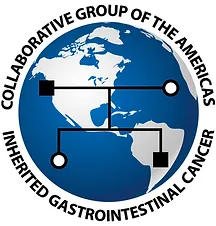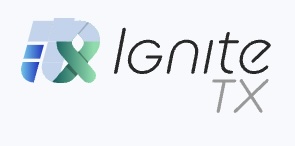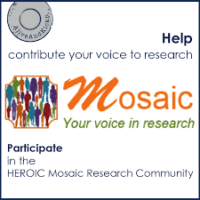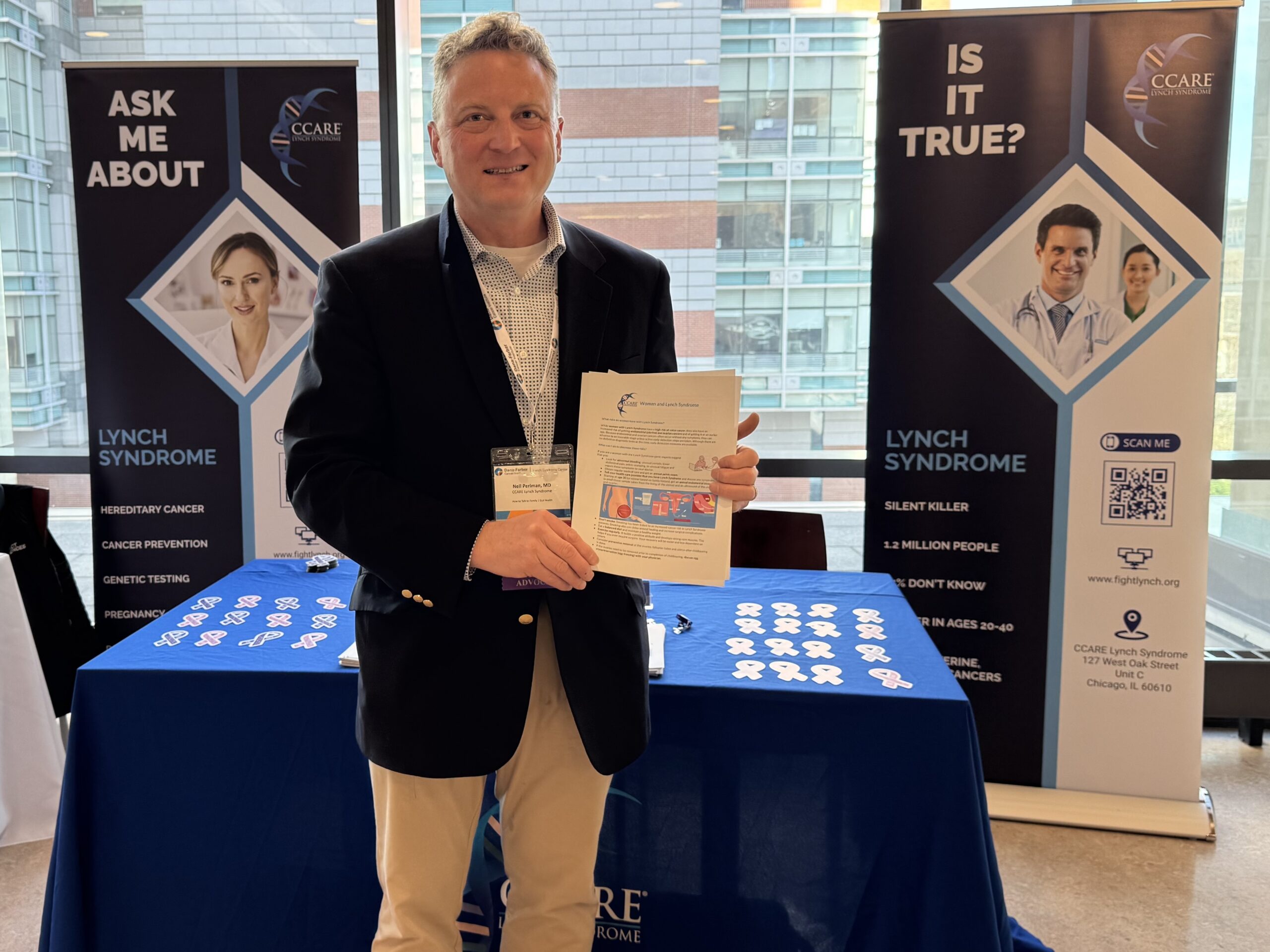Colon Cancer Alliance for Research and Education for Lynch Syndrome
What is Lynch Syndrome?
Lynch syndrome is the most common family cancer syndrome. There are 1.2 million people in the United States with Lynch syndrome but most people have never heard of it. The next most common is BRCA, the breast cancer genes. About 1 million people have this, but it is more widely known. The genes for both of these genetic syndromes were discovered in the 1990s. While they used to cost $5,000 each to test, the cost for both can now be done for just $300.
Lynch syndrome affects people in all countries and all races. Our website has the ability to translate to all languages for your convenience. Please see the translate tab on the top left to change the language.
Are you at risk?
Both of these conditions can be inherited from your mother or father and there is a 50% chance of passing it on to each child. If your family has a history of breast, pancreatic, ovarian, or prostate cancer you should consider getting tested for BRCA. If your family has a history of colon, uterine, ovarian, stomach, bladder, brain, pancreatic, or prostate cancer, consider testing for Lynch syndrome. Besides increasing the risk of getting cancer, these cancers often occur at an earlier age. For this reason screening for some cancers may start in the 20s.
Our Mission
Educate the public and healthcare professionals about Lynch Syndrome and to help fund research for a cure for this disease.
CCARE Events and News
Congratulations to Dr. Asaf Maoz, MD and his team at the Dana-Farber/ Harvard Cancer Center. They are the winner of this year’s CGA-IGC / CCARE Lynch Syndrome research grant at the 30th annual CGA-IGC conference in St. Louis today, October 9, 2025. His study, Leveraging Urine cfDNA for Urinary Tract Surveillance in Lynch Syndrome, will test an improved method to identify cancers of the urinary tract (the bladder and drainage tubes). While Lynch syndrome has been widely known to cause colorectal and uterus cancers, it is also linked with urinary tract cancers. This is especially true for people with the MSH2 abnormality.
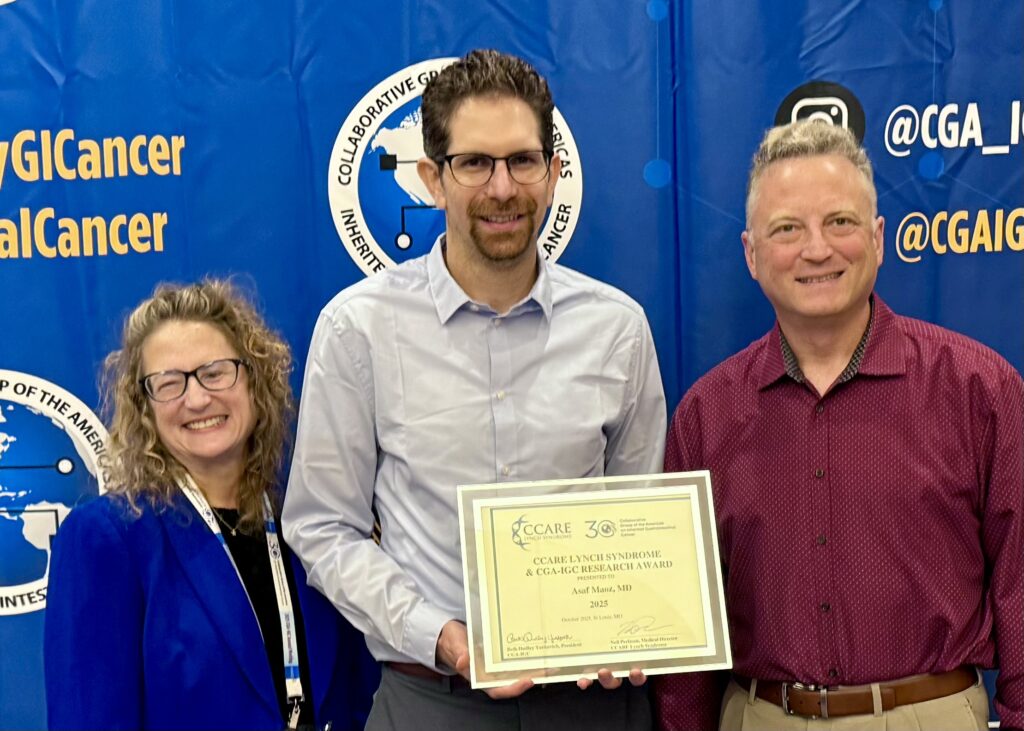
Lynch Syndrome Research Studies
Physicians at the Dana-Farber Cancer Institute at Harvard University are creating a registry of Lynch syndrome Patients. Click here for more information.
Lynch Syndrome Family Communication Study
If you are over 18 years old and were recently diagnosed with Lynch syndrome, please consider helping out on improving Family Communication with a research project from the University of Utah Graduate Program in Genetic Counseling and the Huntsman Cancer Institute. It is online, will take 20-30 minutes, and eligible participants may receive a $15 Amazon gift card. If interested, Email Dr. Lingzi Zhong at Lingzi.zhong@hci.utah.edu.
IGNITE-TX (Identifying individuals for Genetic Testing Treatment for hereditary cancer) is conducting a study to help families share hereditary cancer information with relatives and make decisions about genetic testing. If you or someone in your family has a BRCA1 or BRCA2 mutation or a Lynch syndrome mutation, you may be eligible to participate. Click here for more information.
Lynch Syndrome Risk Calculator
Researchers at Harvard University developed an on-line Lynch syndrome risk calculator called PREMM. To do a quick calculation based on your family history click the following link.
Dr. Lauren Davis Rivera, MD, receives 2025 Society of Gynecologic Oncology (SGO) CCARE Research Award
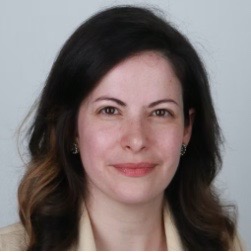
Help us help others. The Colon Cancer Alliance for Research and Education for Lynch Syndrome is an approved 501(c)(3) organization. We are an an all-volunteer organization - donations are important to continue our education and research efforts.
